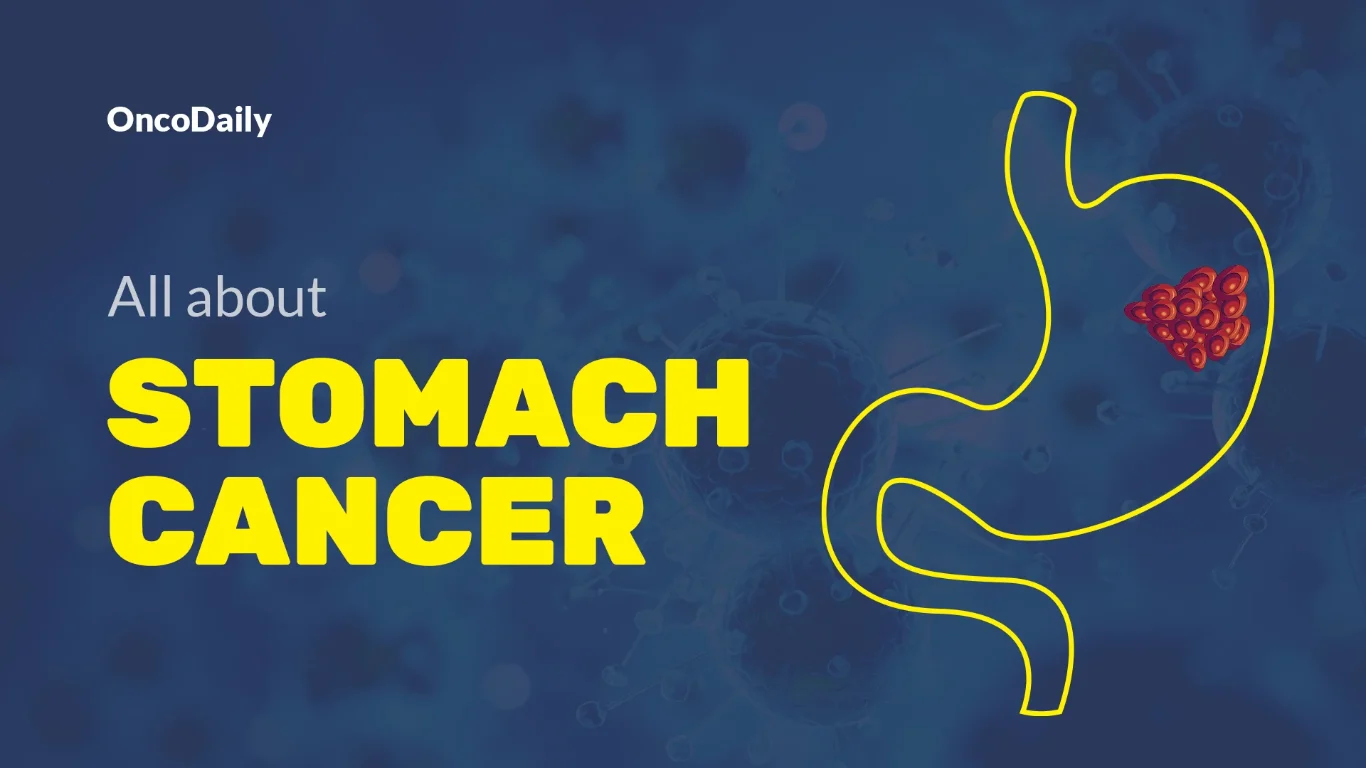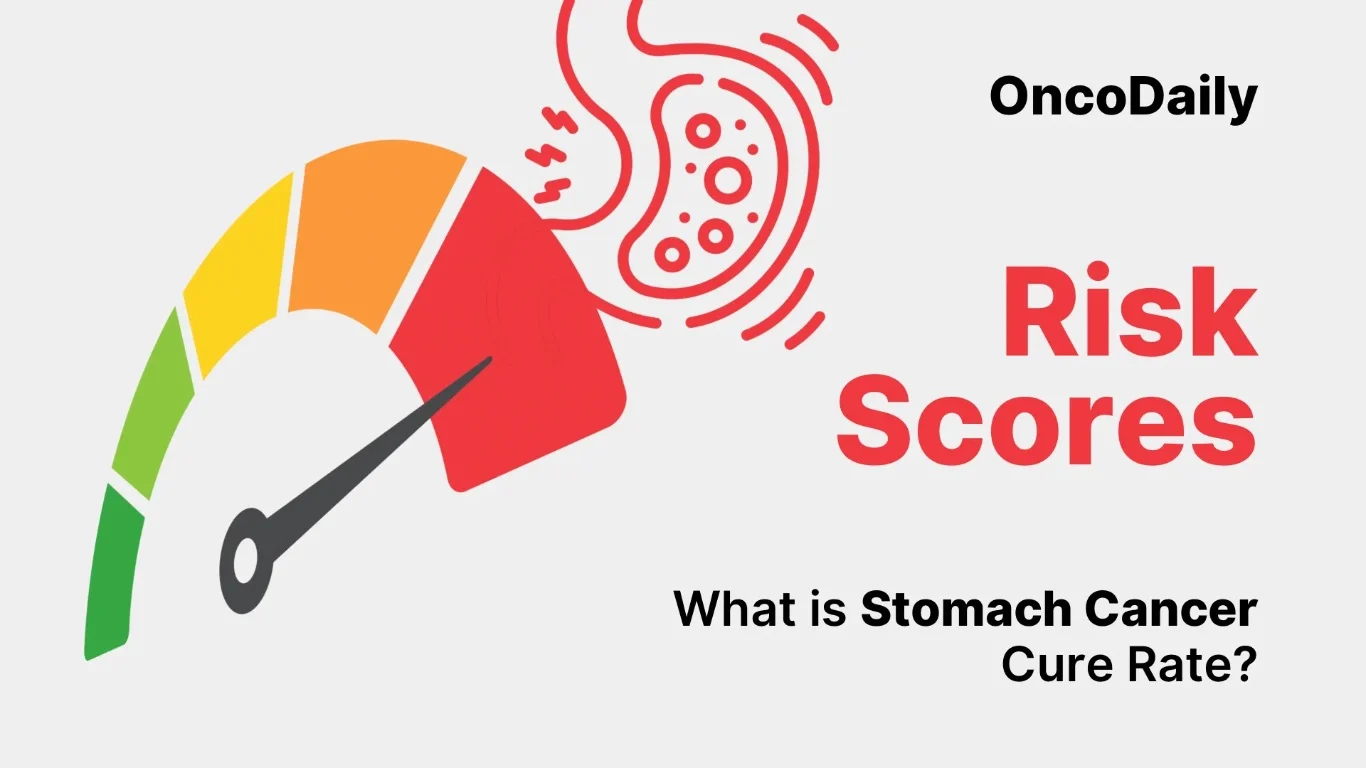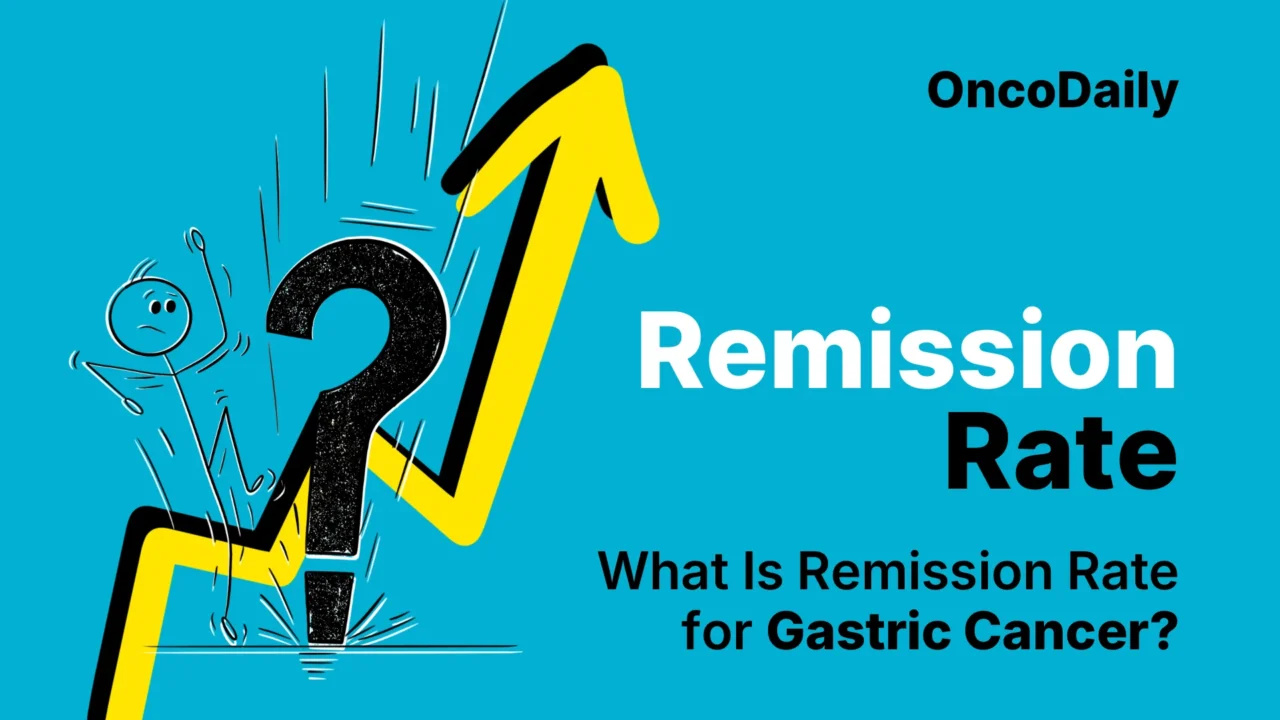Gastric cancer—commonly known as stomach cancer—remains a major global health challenge, affecting more than one million people every year. While incidence varies by region, the disease often presents at advanced stages, making treatment more complex and outcomes less predictable. The question many patients and families ask first is whether stomach cancer can go into remission, and if so, what determines the likelihood of achieving it. Understanding the gastric cancer remission rate provides clarity and helps patients make informed decisions together with their care team.

Read About Gastric Cancer on OncoDaily
What Does “Remission” Mean in Gastric Cancer?
In oncology, remission describes a state where cancer shrinks significantly or disappears after treatment. Complete remission means no detectable cancer remains on imaging or endoscopy. Partial remission means the tumor has shrunk but has not vanished entirely. Importantly, remission does not always equal cure, particularly in later stages of gastric cancer, but it does reflect meaningful control of the disease.
The gastric cancer remission rate varies greatly depending on the stage at diagnosis, tumor subtype, and whether the patient receives surgery, systemic therapy, or targeted treatment. Early-stage cancer offers the highest chance for complete remission, whereas metastatic cancer may still respond well to therapy but with lower odds of a full remission.
How Stage Influences the Gastric Cancer Remission Rate
Early-Stage Gastric Cancer (Stage I–II): Patients diagnosed at early stages—where the tumor is confined to the stomach lining or muscle—have the best chance of complete remission. Surgery remains the mainstay of treatment, and the combination of gastrectomy with lymph node dissection and perioperative chemotherapy can lead to long-term disease-free survival. Studies from Japan and South Korea, where screening programs are routine, show 5-year survival rates exceeding 70–90% in early-stage disease (Japanese Gastric Cancer Association, 2018). These high survival numbers reflect very high remission rates, particularly when the disease is caught before it spreads beyond the stomach.
Locally Advanced Gastric Cancer (Stage III): Stage III gastric cancer has spread more deeply into the stomach wall or lymph nodes but remains potentially curable. In this setting, treatment typically involves chemotherapy before and after surgery. The FLOT regimen has been shown to improve survival and increase tumor regression, with many patients achieving significant shrinkage of their cancer before surgery (Al-Batran et al., 2019). However, the gastric cancer remission rate in Stage III disease is lower than in earlier stages because microscopic cancer cells often spread before diagnosis. Even with aggressive treatment, complete remission occurs in roughly one-third of cases, though partial remission is far more common.
Metastatic Gastric Cancer (Stage IV): For patients with metastatic disease—where cancer has spread to the liver, peritoneum, lungs, or distant lymph nodes—the goal of therapy shifts from cure to control. Complete remission is uncommon. Nonetheless, advances in immunotherapy and targeted therapy have dramatically improved outcomes. Treatments such as trastuzumab, trastuzumab deruxtecan, nivolumab, pembrolizumab, and the emerging agent zanidatamab-hrii have produced deep and durable responses in subsets of patients. Some patients, particularly those with HER2-positive tumors, PD-L1–high tumors, or MSI-high disease, experience remission lasting months or even years (Janjigian et al., 2021; Shitara et al., 2023). Although full remission is rare, meaningful tumor reduction and improved quality of life are now achievable for many.
Tumor Biology and Its Impact on Remission
The gastric cancer remission rate is influenced not only by tumor size and spread but also by biological characteristics, including molecular markers that predict response to treatment.
HER2 Status
About 20% of gastric cancers overexpress HER2, a protein that drives tumor growth. HER2-targeted therapy, especially trastuzumab in earlier stages and newer agents like trastuzumab deruxtecan in metastatic settings, significantly improves response rates (Bang et al., 2010). Patients with HER2-positive disease often achieve higher remission rates because targeted therapy directly interrupts the growth signal driving the cancer.
PD-L1 Expression
PD-L1 expression (measured using CPS score) predicts responsiveness to immunotherapy. Patients with high PD-L1 (CPS ≥ 5 or ≥ 10 depending on the study) may experience substantial tumor shrinkage with checkpoint inhibitors such as nivolumab or pembrolizumab. Immunotherapy has produced long-term remissions in a small but important group of gastric cancer patients (Janjigian et al., 2021).
Microsatellite Instability (MSI-H)
MSI-high gastric cancer accounts for about 5–7% of cases and responds exceptionally well to immunotherapy. In some studies, more than half of MSI-H patients achieved rapid and profound remission with checkpoint inhibitors, even without chemotherapy.
EBV-Positive Gastric Cancer
Epstein–Barr virus–associated gastric cancer is another subtype that responds well to immune-based therapies. These tumors often display high immune cell infiltration, making them particularly susceptible to checkpoint blockade.
How Treatments Improve Gastric Cancer Remission Rate
Surgery remains the only curative treatment for early-stage and some locally advanced gastric cancers. Complete tumor removal offers the strongest chance of remission. The quality of surgery—including the extent of lymph node dissection—is a major factor influencing outcomes.
Chemotherapy plays a critical role in increasing the gastric cancer remission rate. Perioperative chemotherapy helps shrink tumors before surgery and eliminates microscopic disease afterward. In metastatic cancer, chemotherapy reduces symptoms and prolongs survival.
Immunotherapy has become a key treatment for metastatic gastric cancer. Drugs that activate the immune system to recognize cancer cells can produce long-lasting effects, even when chemotherapy no longer works. Patients with high PD-L1 expression, MSI-H tumors, or EBV-positive tumors see the greatest benefit.
HER2-targeted drugs remain essential for HER2-positive gastric cancer. Trastuzumab was the first breakthrough, but newer agents such as trastuzumab deruxtecan and zanidatamab-hrii offer greater potency, higher response rates, and longer disease control.
Can Gastric Cancer Be Cured?
Cure is achievable primarily in early and some locally advanced stages. Even in metastatic disease, new treatments can lead to prolonged remission. Survival and remission continue to improve as more patients undergo biomarker testing and receive personalized therapies tailored to the biology of their cancer.

Read About Gastric Cancer Cure Rate on OncoDaily
What Patients Should Remember
The gastric cancer remission rate varies based on stage, tumor biology, and the treatments used. Early detection remains the most important predictor of remission and cure. Modern therapies—including immunotherapy and HER2-targeted treatment—are offering new hope even for patients with advanced disease. With growing access to molecular testing and personalized treatment strategies, remission outcomes are improving worldwide.
You Can Watch More on OncoDaily Youtube TV
Written by Armen Gevorgyan, MD


